When a young person feels unsafe or unsure about the future, they can rely on the National Runaway Safeline (NRS) for a listening ear, guidance, support and connections to life-saving resources. The NRS Crisis Services team of staff and volunteers knows firsthand the struggles experienced by youth today, and each team member steps up to help without judgement. Among those essential volunteers is the October Volunteer of the Month, Doug E.
A Philadelphia native who today calls Chicago home, Doug has been volunteering with the National Runaway Safeline since the late 1990’s. Like many NRS volunteers, Doug found the organization while looking for opportunities to directly impact the lives of young people in need. He was intrigued by the idea of phone crisis intervention and thought volunteering with NRS would be an exciting and challenging experience.
The NRS Crisis Services team supports not only those who contact the organization, but also one another. “The camaraderie in the Crisis Center and the satisfaction in talking to youth and getting them a plan or help kept me coming back for seven years until we moved to Las Vegas.”
After many years of living out West, Doug moved back to Chicago and resumed his role as a Crisis Service volunteer. “I see the difference that NRS makes in someone’s life at a very difficult time for them. Being able to bring some relief, hope or strength to someone in crisis or dealing with someone in crisis is so satisfying. It really is a unique feeling that I don’t get from anything else. I still find NRS to be a very rewarding and fulfilling volunteer experience.”
Outside of NRS, Doug works in sales, specializing in merchandizing for casinos, a role he calls “very niche.” He has a range of hobbies, including flying as a private pilot, off-road biking and taking his two dogs to the forest preserves to explore.
NRS is proud to have Doug on board to uplift the young people and concerned adults who reach out each year. For those who do not feel ready to chat with NRS, Doug wants them to feel empowered to take control of their own narrative.
He explains, “It is your story, you get to tell it the way you want and when you want. Just saying you have something to share is a courageous start.”




